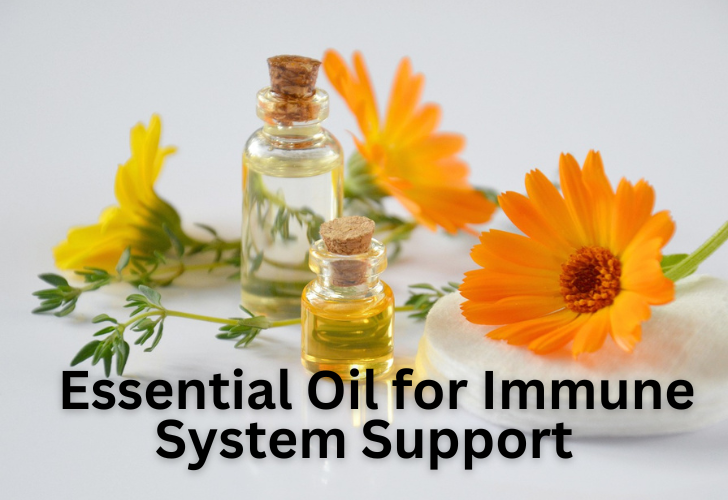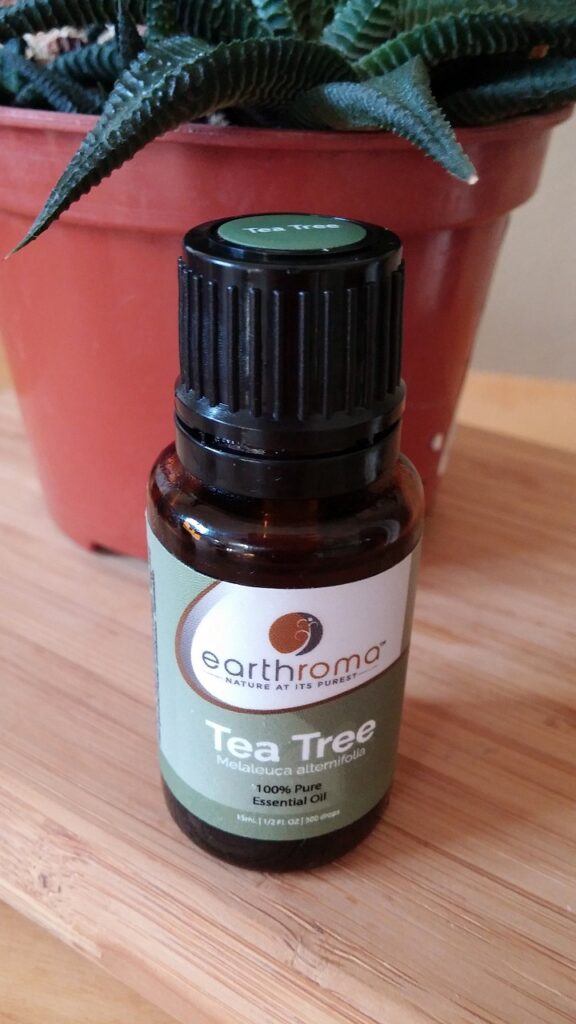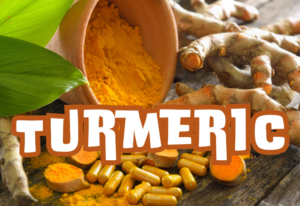
Harnessing the Power of Essential Oils for Immune System Support
The use of oils derived from plant extracts for therapeutic, calming, and decorative purposes is known as aromatherapy. These oils are referred to as essential oils, and they are used in conjunction with other substances to create lotions, fragrances, and products for skin, hair, and beauty care.
Essential Oils for Immune System Support: With so many potential health benefits, essential oils have become a popular choice in natural medicines in recent years. The ability to assist the immune system has drawn the most attention among these advantages. Although it’s important to remember that essential oils cannot treat medical conditions, when utilized carefully, their therapeutic qualities may support healthy immune function in general. In this in-depth investigation, we examine the specifics of three essential oils that are well-known for having immune-stimulating properties.
Aromatherapy is helpful in coping with and handling a range of emotions. In actuality, specific plant extracts are useful for precisely this kind of application.
Plant extracts including Bergamot, Geranium, Cedarwood, Mandarin, and Lavender can help with anxiety, while Jasmine, Orange, Roman Chamonile, Rose, and Ylang Ylang can help with anger.
Mandarin, Helichrysum, Sandalwood, Frankincense, Clary Sage, and Helichrysum can all help with depression, while Cypress, Bay Laurel, and Rosemary can boost confidence.
Lorem ipsum dolor sit amet, consectetur adipiscing elit. Ut elit tellus, luctus nec ullamcorper mattis, pulvinar dapibus leo.
1. Tea Tree Oil (Melaleuca alternifolia): A Potent Antimicrobial Ally

Melaleuca alternifolia leaves are the source of tea tree oil, which has long been prized for its strong antiviral and antibacterial qualities. The main factor contributing to tea tree oil’s effectiveness is terpinen-4-ol, a substance with a broad spectrum of antimicrobial activity.
How It Works:
By rupturing the cell membranes of bacteria, fungus, and viruses, terpinen-4-ol demonstrates antibacterial properties. Because of this, tea tree oil is a useful addition to your arsenal for increasing immunity.
Application Techniques:
- Diffusion: To clean the air in your living area, add a few drops to a diffuser.
- Topical Application: For a systemic effect, mix with a carrier oil and apply to the soles of your feet or pulse points.
Scientific Insights
The potential of tea tree oil to treat skin problems and respiratory infections has been investigated in recent studies. Due to its many advantages, it is a useful tool for bolstering the body’s defense systems. The Power of Essential Oils for Immune System Support is undeniable.
2. Eucalyptus Oil (Eucalyptus globulus): Respiratory Wellness through Nature's Pharmacy
One of the most common essential oils, eucalyptus oil is made from the leaves of the Eucalyptus globulus plant and is well-known for its benefits to respiratory health. Its antibacterial and decongestant qualities make it a popular choice in seasons when respiratory issues are common.

Active Components:
The main ingredients in eucalyptus oil, cineole and eucalyptol, help to enhance respiratory function. It is thought that these substances have anti-inflammatory and bronchodilator properties.
Application Techniques:
- Inhalation: Inhale the vapor by adding a few drops to hot water or a steam inhaler.
- Topical Application: Dilute with a carrier oil and apply to the chest for targeted respiratory support.
Holistic Wellness:
Beyond its respiratory advantages, eucalyptus oil is highly regarded for its anti-inflammatory and stress-relieving qualities. The holistic approach is consistent with the idea that overall wellness is interdependent.
3. Frankincense Oil (Boswellia carterii): Ancient Wisdom Meets Modern Immunity Support
The resin of Boswellia carterii is the source of frankincense, which has a rich history in conventional medicine. Respected for its possible ability to strengthen immunity, frankincense has several health benefits due to the presence of bioactive components.

Key Compounds:
Frankincense contains boswellic acids, which have immunomodulatory and anti-inflammatory properties. These characteristics make it an appealing option for anyone looking for immunological support.
Application Techniques:
- Aromatherapy: Diffuse frankincense oil to create a calming and immune-boosting atmosphere.
- Topical Application: Dilute it with a carrier oil and apply to the wrists or back of the neck for a grounding effect.
Holistic Healing Traditions:
The historical importance of frankincense in many different cultures imbues its contemporary uses with a sense of reverence. Its capacity to enhance emotional well-being is consistent with the knowledge that immunological function and mental health are closely related.
Safety Considerations: Navigating the Essential Oil Terrain
It’s critical to use essential oils with caution and knowledge as we investigate their possible advantages.
Proper Dilution
Essential oils are basically concentrated, hence you need to dilute it before application. Carrier oils are added to these essential oils, which prevent any kind of skin irritation and/or harmful side effects.
Patch Testing
To determine personal sensitivities, do a patch test prior to using any essential oils in your routine. This is a particularly crucial step for people with sensitive skin or allergies.
Consult Healthcare Professionals:
Before incorporating essential oils into your regimen, it’s best to speak with a healthcare provider if you’re expecting, nursing, or have any underlying medical concerns. Although these oils may be beneficial, each person’s health situation is unique.
Conclusion: Crafting a Balanced Approach to Immune Health
Essential oils can be useful instruments in the fight against immune system dysfunction if used sensibly and intelligently. The antibacterial properties of tea tree oil, the respiratory advantages of eucalyptus oil, and the historical significance of frankincense oil combine to provide a comprehensive strategy for immune system fortification.
It’s critical to understand that essential oils are a component of a larger wellness plan. A healthy lifestyle that includes regular exercise, a balanced diet, and enough sleep is still essential. As you incorporate these oils into your routine, consider how your body reacts and adjust as necessary.
Essential oils are a colorful thread in the holistic wellness tapestry, providing sensory exploration of the healing powers of nature in addition to possible immunological support.answers.





